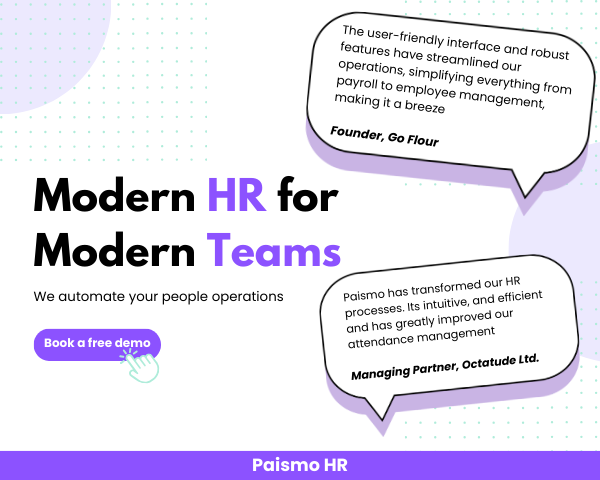Highlights
- Labour laws in Pakistan ensure fair wages, safe work, proper contracts, leave, and protection against discrimination.
- Employers must follow contract rules covering duties, pay, hours, benefits, gratuity, and data security obligations.
- Employees receive annual, maternity, sick, casual, festival leave, and other benefits.
- The 18th Amendment allowed provinces to create new labour laws, replacing outdated federal regulations.
- Provinces like Sindh, Punjab, and Balochistan have introduced updated wages, safety, maternity, and worker rights acts.
Employers in today’s market must understand labour laws in Pakistan. These laws ensure fairness, protect workers, and cover hiring, safety, leave, and benefits employers must provide. In addition, the laws introduced after the 18th Amendment brought significant changes that every employer should understand. As companies grow, meeting these legal requirements becomes more demanding. Therefore, many businesses now choose smart solutions. By using employee management software and modern HR software in Pakistan, they can handle compliance more easily, improve efficiency, and confidently support their workforce.
What Is the Scope of Labour Law in Pakistan?
Labour laws in Pakistan shape how employers and employees work together. They provide the basis for fair wages, safe conditions, reasonable hours, paid leave, and clear rules for termination.
These laws apply to the manufacturing, textiles, services, and commerce. They help businesses follow fair standards while ensuring workers receive proper protection and respect at the workplace.
At the same time, these laws include safeguards such as strict child labour laws in Pakistan to prevent exploitation and promote ethical practices. They also guide employers on maintaining compliance through proper documentation and measures like an employee write-up. Along with these protections, provisions for social security, health benefits, and retirement schemes strengthen employee welfare and contribute to long-term economic stability.
The Quick Facts About Employment Laws in Pakistan
Employment rules in Pakistan provide a clear structure for workplace fairness and employee rights. These cover contracts, wages, leave, and workplace safety. Below are the key points every employer should know:
- The labour law in Pakistan regulates the relationship between employers and employees.
- A probation period can last up to three months, during which either party may end the contract without notice.
- Every employee must have a written contract in standard format, including job role, wage, and responsibilities.
- The minimum wage is PKR 15,000.
- Regular working hours cannot exceed 48 hours per week, with a weekly rest day, usually Sunday.
- Employees are entitled to regular breaks, including one hour after six hours.
- Paid annual leave is available after one year of service.
- Pregnant employees receive full-pay maternity leave, and employers cannot dismiss them during this time.
- Sick leave is 121 days for ordinary illness and up to 365 days for chronic disease.
- Discrimination based on gender, disability, or other grounds is strictly prohibited.
- Employers must ensure workplace safety and protect employees from occupational hazards.
- Termination is allowed only for misconduct; other reasons may count as unlawful.
- Companies now use modern workflows and employee feedback software to improve compliance, track performance, and strengthen fairness at work.
What Must Employers Include in Employment Contracts?
Employment contracts in Pakistan define the terms of work, ensuring clarity and legal compliance for both employers and employees. These agreements safeguard rights while outlining mutual responsibilities.
An employment contract should cover the following key details:
- Defined job duties and reporting structure
- Salary, benefits, and payment details
- Working hours, overtime rules, and leave entitlements
- Conditions of probation and termination procedures
- Equal opportunity and workplace safety measures
- Confidentiality terms with strong data security protections
What Leave and Benefits Must Employers Provide in Pakistan?
Pakistan’s labour framework provides fair leave entitlements and workplace support to promote a balanced work-life environment. These provisions are also a vital part of employee benefits, helping businesses build trust and long-term stability.
An employment contract should cover the following leave and benefit details:
- Employees are entitled to annual leave with full pay after 12 months of continuous service, usually at least 14 days per year.
- Female employees are allowed 12 weeks of maternity leave with full pay, with provinces like Sindh offering extended benefits under local laws.
- Sick leave is typically up to 10 paid days per year, with longer durations requiring medical certification.
- Casual leave of around 10 days per year is granted for urgent or personal matters.
- Festival leave aligns with official public holidays recognized nationally or regionally.
- Some employers also provide bereavement leave to support employees after losing close family members.
- Study leave may be granted for higher education or professional development to encourage career growth.
When managed well, these provisions ensure compliance with national regulations and support a positive workplace culture. Working with an employer of record helps businesses meet local legal requirements while making sure employees receive their full benefits.
List of Provincial Labour Laws Introduced After the 18th Amendment
After the 18th Constitutional Amendment in 2010, labour became a provincial subject. This allowed each province to create and enforce its own labour laws. Since then, several provinces have introduced new legislation to replace or modernize earlier federal laws. Below is an overview of the major acts:
Sindh Terms of Employment (Standing Orders) Act, 2015
- Replaces the federal Industrial and Commercial Employment Ordinance, 1968.
- Regulates service terms such as appointment letters, termination, and disciplinary actions.
- Expands protection for contract and temporary workers.
- Applies to establishments with 50 or more workers in Sindh.
Sindh Minimum Wages Act, 2015
- Replaces the Federal Minimum Wages Ordinance, 1961.
- Sets wage rates based on skill level, region, and type of work.
- Creates a Minimum Wage Board for Sindh.
- Provides annual review and revision mechanisms.
Sindh Factories Act, 2015
- Updates the Factories Act, 1934 for Sindh.
- Covers working hours, health, safety, and welfare facilities.
- Mandates fire safety, protective gear, and cleanliness.
- Imposes stricter penalties and reporting requirements.
Sindh Maternity Benefits Act, 2018
- Replaces the Maternity Benefit Ordinance, 1958.
- Provides 12 weeks of paid maternity leave (6 weeks before and 6 weeks after delivery).
- Includes adoptive and surrogate mothers.
- Applies to all industrial, commercial, and service establishments in Sindh.
Sindh Employees’ Social Security Act, 2023
- Replaces the Provincial Employees’ Social Security Ordinance, 1965.
- Offers medical care, old-age benefits, and injury compensation.
- Establishes the Sindh Social Security Institution (SSSI).
- Expands coverage to informal sector workers.
Balochistan Shops and Establishments Act, 2015
- Updates the earlier Shops and Establishments Ordinance.
- Regulates hours of work, overtime, holidays, and rest periods.
- Applies to all commercial establishments in Balochistan.
- Protects women and young workers.
Punjab Domestic Workers Act, 2019
- A new law specifically for domestic workers.
- Recognizes domestic workers as formal employees.
- Regulates working hours, rest breaks, and age limits.
- Prohibits employment of children under 15.
- Ensures access to dispute resolution and social security.
Summary
A clear understanding of labour laws in Pakistan is vital for building fair and compliant workplaces. These laws cover employment contracts, wages, leave policies, benefits, and worker protections while evolving through provincial legislation after the 18th Amendment. By ensuring both employee rights and organizational compliance, they strengthen workplace stability and long-term business growth.
Frequently Asked Question
What Are the Labour Laws in Pakistan?
Labour laws in Pakistan regulate wages, working hours, contracts, leave, gratuity, and workplace safety. They protect employee rights while ensuring businesses follow fair and lawful practices.
Become a part of the Paismo community
Paismo is an HR software that can help simplify your HR operations. In today's dynamic economic environment, efficient HR and automated payroll management are no longer a luxury but a necessity. Paismo is a comprehensive solution that transforms traditional HR complexes into streamlined and automated workflows. Paismo and its paired biometric device integration can be used for your business to mark employee attendance and record their timesheets accurately.
Paismo simplifies your tasks with its core HRMS, timesheets, and attendance management, as well as biometric attendance, payroll automation, and leave management system.
Take the first step toward modernizing your HR and payroll processes and explore what Paismo can do for you. Book a demo with our sales team.











